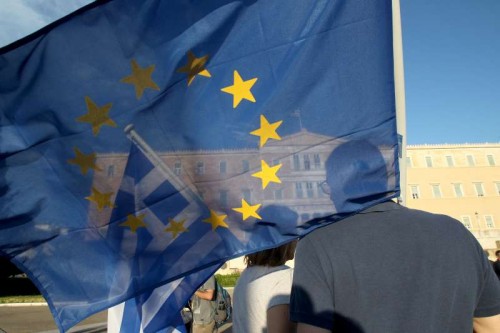
Eurogroup President Jeroen Dijsselbloem has said the new proposals from the Greek government which came in early on Monday were “a positive step” in the process and that it was possible to reach a deal within the week.
“New proposal from the Greek government came in this morning which we welcomed today, which was seen as a positive step in the process,” Dijsselbloem said in a press conference after a short Eurogroup meeting in Brussels.
“The Eurogroup has urged the institutions to work closely together with the Greek authorities to start immediately to go into the proposals, getting all the specifics and doing the calculations on them … and all of these with a view if possible to reach an agreement later this week, using the Greek proposals as basis for that,” Xinhua quoted Dijsselbloem as saying.
He said if all goes well the Eurogroup will have another meeting later this week to hear the final outcome of the Greek authorities.
“As I said, it’s a welcome step, and we consider it a positive direction, so I think it’s also an opportunity to get this deal later this week,” Dijsselbloem added.
“We looked at the proposals very quickly, it’s a good basis for work, work so have to be done on clarifying things and specify things, and check the overall consistency,” said European Commissioner for Economic and Financial Affairs Pierre Moscovici.
Moscovici also noted that the evening European Union summit was expected to provide political basis for future negotiations.
European Commission Vice President Valdis Dombrovskis confirmed there’ll be another Eurogroup this week through his twitter.
“Greece proposals a welcome step but more work together with institutions needed. Eurogroup to reconvene this week. We need a deal in coming days,” he said in his Twitter feed.
Monday was widely seen as a decisive day for Greece to avoid default. The crucial Eurogroup meeting may be the last opportunity for Greece and its international creditors to bridge the gaps over debt talks.
Talks over Greek debt issue have been in deadlock for five months. The European Commission, the International Monatary Fund (IMF) and the European Central Bank (ECB) are unwilling to unlock the final 7.2 billion euros ($8.2 billion) tranche of bailout funds until Greece agrees to economic reforms.
On June 30, the extension of Greece’s second bailout expires. Without a deal by then Athens may not cover a 1.5-billion-euro loan installment payment to the IMF due by the same day. The country will risk a default and exit from the Euro Zone.